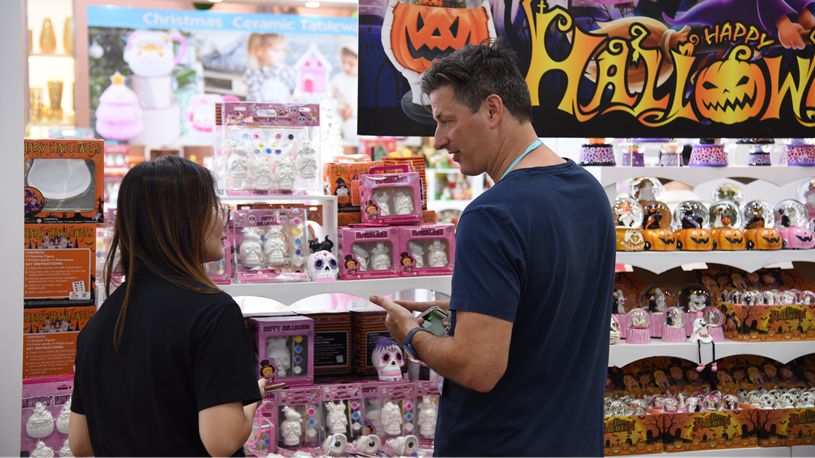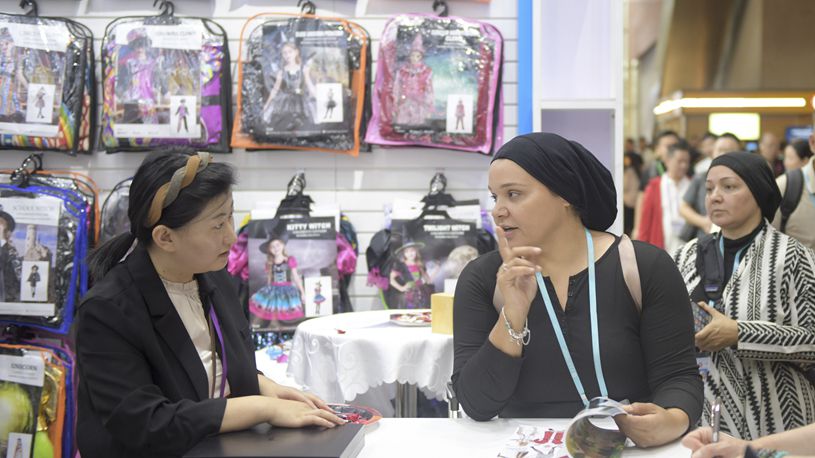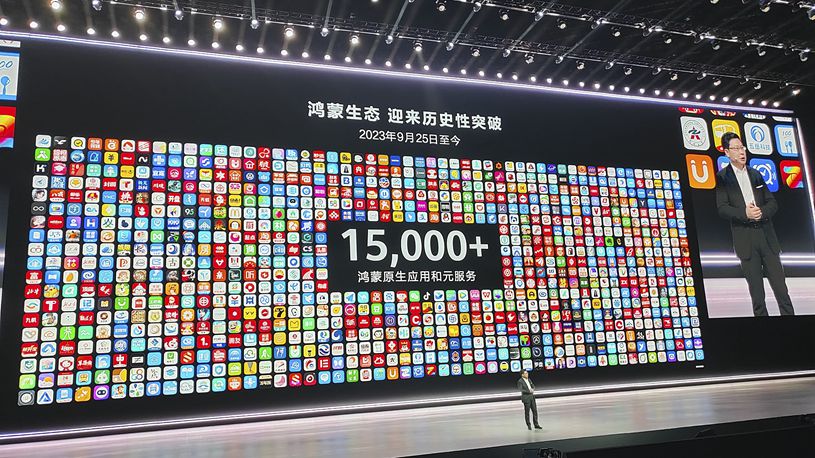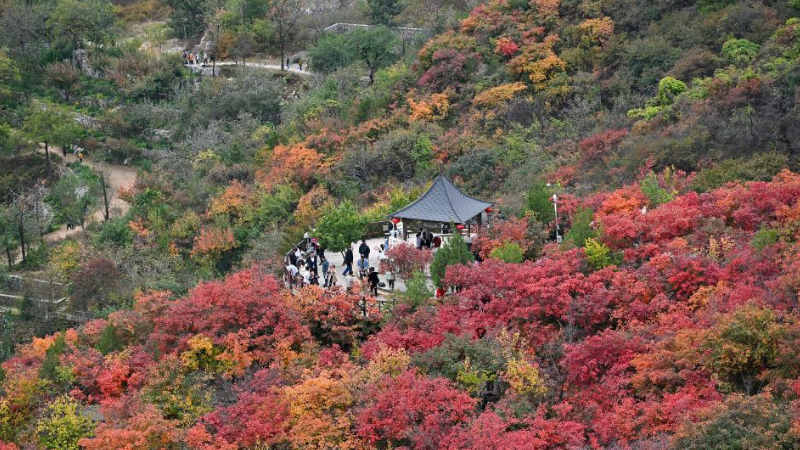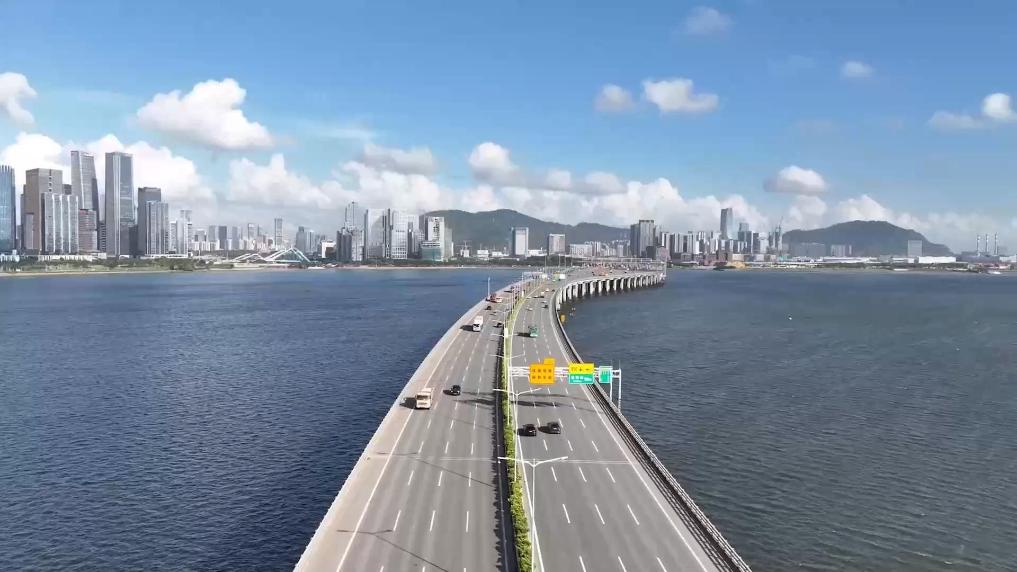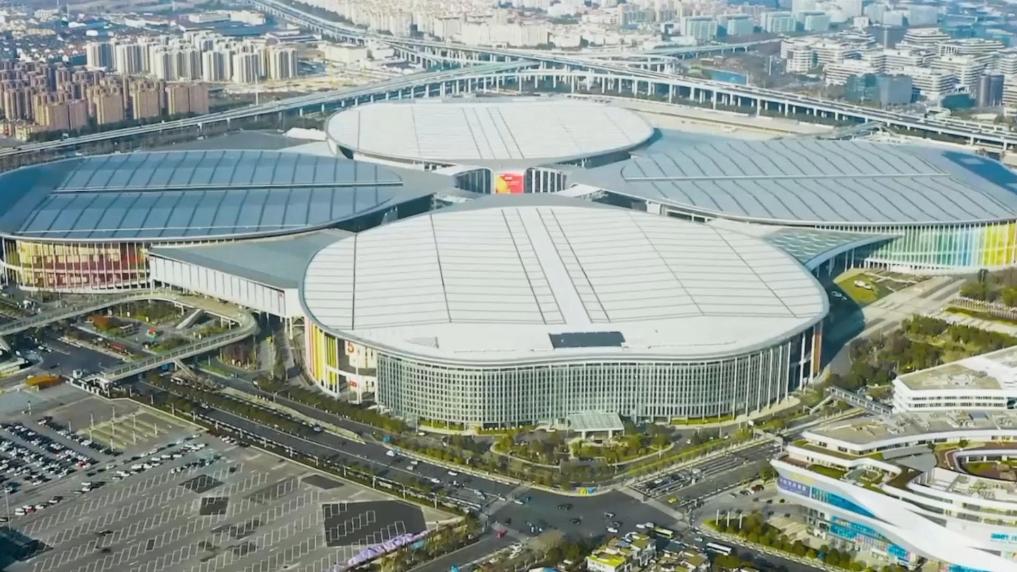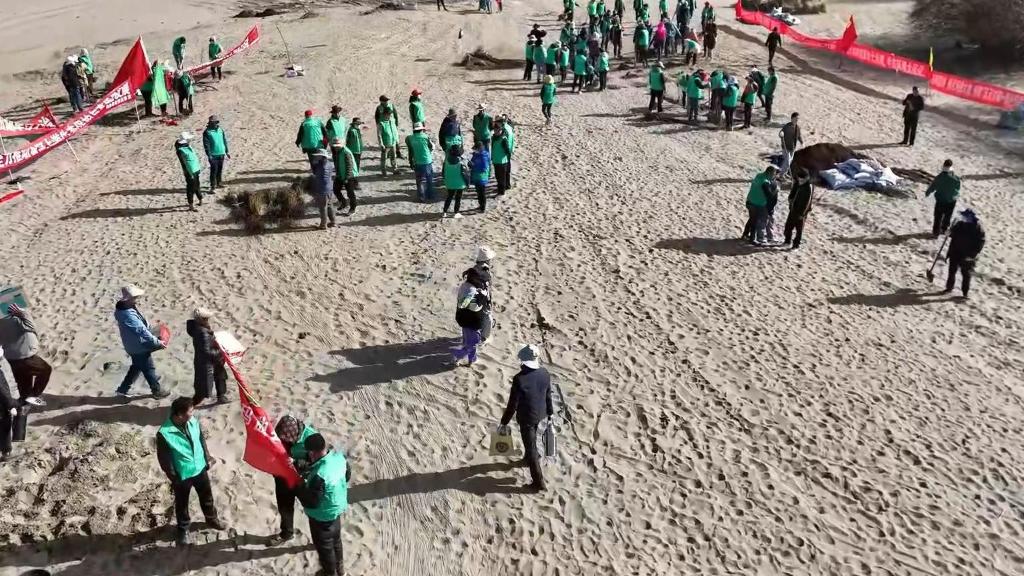by Mahmoud Fouly
CAIRO, Oct. 25 (Xinhua) -- A fleet of 26 seemingly ancient metal boats of different sizes sits silently at the Giza Pyramids plateau on the outskirts of Cairo, as if they were sailing through time in the sand waves of the desert with the three iconic pyramids of Giza towering regally in the backdrop.
The fleet, featuring its largest vessels at 5 meters in length, is an art installation entitled "Exodus" by Spanish sculptor Xavier Mascaro. The piece is displayed alongside a dozen artworks installed around the pyramids in the fourth edition of "Forever Is Now" open-air exhibition, which opened on Thursday and will run through mid-November.
Mascaro said that it took him more than two years to complete his work, and, for him, displaying it around the pyramids was like "a dream that has come true."
"No matter where you are from, art is like a bond between us. It's a timeless expression between cultures," the Spanish artist told Xinhua, referring to the pyramids plateau as "a place of eternity."
Not far from Mascaro's "Exodus" fleet, "Vessel of Time" by French sculptor Jean-Marie Appriou exhibits an ancient Egyptian boat made of Nile River clay with a bronze statue of an unclothed boy standing in the middle, representing the journey of childhood and humanity from life to death.
Combining contemporary art with ancient history, represented in the pyramids of Giza, a UNESCO World Heritage Site, "Forever is Now" is organized by Art D'Egypte company, an Egyptian platform dedicated to art and heritage, seeking to blur the lines between past and present and create cultural interaction among artists from different parts of the world.
"Every year we try to stay on top and address the whole world to bring all countries together in one place in this civilization, which all people know and are impressed by. This is a slogan for humanity," said chief organizer Nadine Abdel-Ghaffar, also founder of Art D'Egypte.
"I always say that the pyramids have been there for over 4,500 years and they are still there, surviving all the wars and all the changes, and they will remain there forever," she added.
One of the eye-catching installations is "The Race" by Egyptian artist Khaled Zaki, featuring two unruly horses, made of stainless steel, racing among wheels resembling those of ancient Egyptian chariots.
The work of Greek artist Nassia Inglessis shows a 5-meter tall pyramid-like aluminum honeycomb structure aligned with the Pyramid of Khafre in the background. The two-piece artwork, named "Liquid Solid," has a passage in the middle through which a visitor can cross to the other side to have a full view of the distant pyramid.
"Liquid Solid is the name of the artwork. The first point of inspiration is the sand, which is solid but acts like a liquid. Actually, it's how the ancient Egyptians used it to almost push masses of stone, defying gravity," the Greek artist and engineer told Xinhua.
The installation, Monochrome RGB, by Italian artist Luca Boffi features three standing adjacent square frames covered in transparent red, green, and blue plates, through which a viewer can see the three pyramids behind with a touch of a different color.
In a different area of the outdoor exhibition stands the mesmerizing 5-meter high artwork of South African artist Jake Michael Singer, "We Will Meet Again in the Sky," depicting ancient Egyptian mythological bird Bennu, a deity linked to creation and rebirth. The work is made of numerous dark steel rods forming the magnificent bird as if it were going to fly high toward the pyramids.
Other displayed artworks include "Four Temples" by South Korean artist Ik-Joong Kang and "Padma/Lotus" by Indian artist Shilo Shiv Suleman.
The works wowed both art enthusiasts attending the exhibition and tourists visiting the three pyramids of Giza.
"I like it because usually when you see the pyramids, you think about Egypt and just Egypt. But mixing it with international artists shows how art can connect or bridge different cultures," Swiss visitor Fabio Paulitti told Xinhua. "And I think it's a beautiful message."

